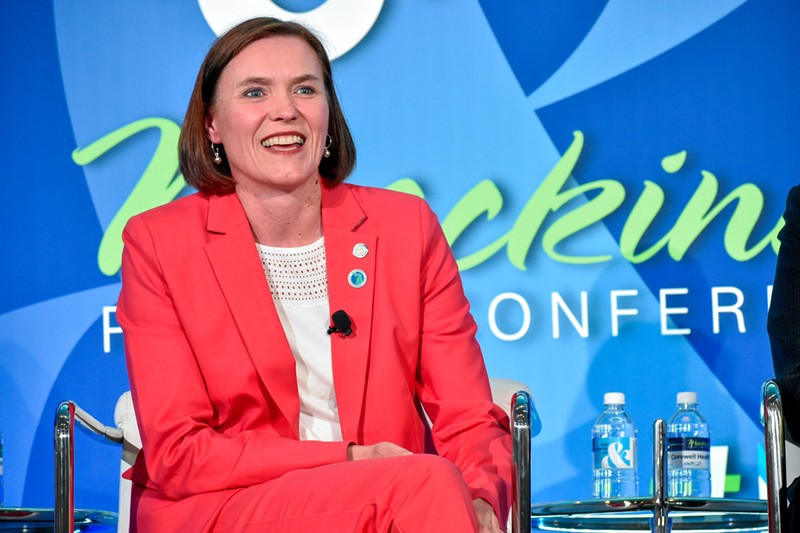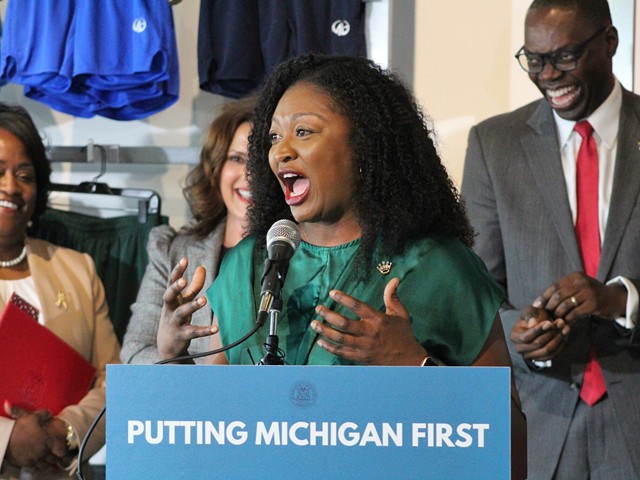
Several Michigan lawmakers joined their colleagues in other states at the White House Thursday to talk about victories and barriers in expanding access to reproductive health care.
It was a good opportunity to look at what other states are implementing and hear about what is coming down the pipeline on a federal level, state Senate Majority Leader Winnie Brinks told the Michigan Advance in an interview Thursday afternoon.
In the coming months, after the budget for Fiscal Year 2024 is finished, the Democratic-majority Legislature will be looking at and possibly introducing legislation to address some of Michigan’s targeted restrictions on abortion providers, commonly known as TRAP laws.
“We’ve been taking a look at all the statutes on the books as it relates to reproductive health care and trying to ensure that they are medically accurate and that they are truthful, and that they are necessary,” Brinks said.
“The whole idea under past legislatures controlled by anti-choice majorities, they would try to throw up unnecessary barriers that are not related to medical care because of their personal beliefs about reproductive health — and that's simply not the job of government.”
tweet this
Michigan voters approved a state constitutional amendment in November (Proposal 3) codifying the right to abortions and reproductive health care. But it’s not enough to ensure everyone gets access to choices in their health care decisions, Brinks said.
Brinks didn’t specify changes to specific laws, but she said issues like blocks on insurance coverage for abortion and other barriers not based on medical necessity are being reviewed by lawmakers.
“The whole idea under past legislatures controlled by anti-choice majorities, they would try to throw up unnecessary barriers that are not related to medical care because of their personal beliefs about reproductive health — and that’s simply not the job of government,” Brinks said.
Insurance blocks on abortion include is what critics of the law call “rape insurance,” as Michigan bans health plans under the Affordable Care Act from covering abortions except if a pregnancy endangers the life of the pregnant person.
“The insurance rider that’s required for abortion care, that’s a problematic way to treat one specific medical service. So we’d certainly take a look at that,” Brinks said.
Planned Parenthood Advocates of Michigan asked lawmakers to repeal several laws they say continue banning certain Michiganders from accessing abortion during their Lobby Day in May, at which Gov. Gretchen Whitmer and lawmakers spoke.
The group wants insurance barriers gone, as well as removing the requirement that minors have parental consent to access an abortion and the removal of the 24-hour waiting period for an abortion.
Rep. Laurie Pohutsky (D-Livonia), Rep. Felicia Brabec (D-Pittsfield Twp.) and Sen. Erika Geiss (D-Taylor) also attended the Washington, D.C., conversation Thursday,
Pohutsky told the Advance in May that she hopes to reintroduce the Reproductive Health Act to end several TRAP laws and restrictions on abortion. Waiting periods and parental consent are within the act, as well requirements for abortion providing facilities to be licensed as free standing surgical centers.
“Things that dictate how wide door frames have to be, things that were literally put into place to limit the number of places in the state of Michigan, that would be able to provide abortion care, things that have no bearing on patient safety or health or anything like that, they’re just put in place to provide more hoops for either providers or patients to have to jump through to make it more unlikely that they’ll be able to receive receive an abortion,” Pohutsky told the Advance in May.
Originally published by Michigan Advance. It is republished with permission.
Subscribe to Metro Times newsletters.
Follow us: Google News | NewsBreak | Reddit | Instagram | Facebook | Twitter






